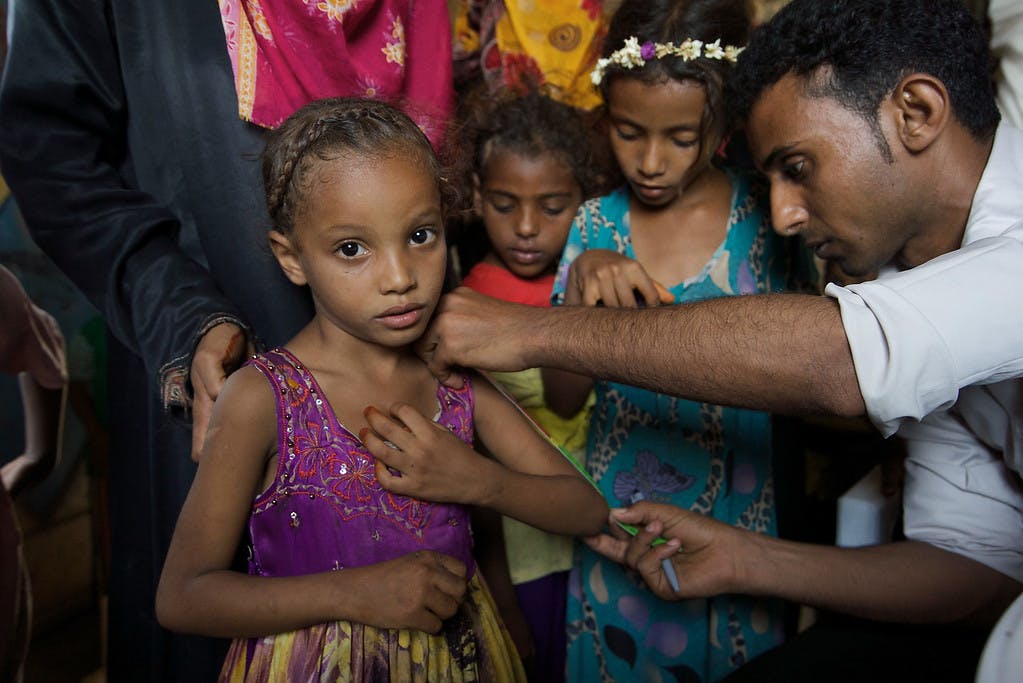Editor’s note: This page was last updated February 20, 2019.
“If you lose hope as a humanitarian, in any crisis or disaster, then you cannot serve the people who need your help.” — Ms. Anjali Sen, UNFPA Representative to Yemen
Yemen faces the worst humanitarian crisis in the world.
The dangers, according to Mark Lowcock, the head of the United Nations Office for the Coordination of Humanitarian Affairs (OCHA), are “much bigger than anything any professional in this field has seen during their working lives.”
Donate to the Yemen Humanitarian Fund
More than two-thirds of the war-torn country — an estimated 20 million women, men, and children — face hunger. To make matters worse, poor sanitation and hygiene, lack of clean water, and other complications from continued conflict have led to another deadly outbreak of cholera.
Malnourished children and pregnant women are especially vulnerable to the disease.
Read more on the background of Yemen’s crisis here.
Meet an Aid Worker Keeping Hope Alive
Although the situation in Yemen is dire and may seem insurmountable, we can’t forget that humanitarian aid still matters. And it saves lives.
Right now, UN agencies and humanitarian partners are responding with medicine, food, and other aid – but they need more support and resources to meet the growing needs in the country.
A previous interview with Ms. Anjali Sen, UNFPA Representative to Yemen, reminds us of the real lives we can impact in crisis – and the courageous people working on the ground to make it happen.
Anjali works to protect the reproductive rights and health of Yemeni women and girls, who are disproportionately impacted. While her job is incredibly challenging, she believes that as a humanitarian aid worker, it’s important “to remain hopeful and never give up on any situation.”

As she describes one story of impact,
“I remember a visit to one of the shelters we support in Al Hudaydah, a 15-year-old girl had been married to an old man by her family to overcome the economic hardships of the conflict. She had been abused and ill-treated by her husband that she had taken the courage to run away and find a police station, that sent her to the shelter.
At the shelter, she was learning to make handicrafts and wanted to go back to school and get a degree. Such stories really show the resilience and courage of women and girls. I always say to my friends and colleagues it is not us who empower them but they empower us.”
Every day, UN humanitarian workers — just like Anjali — refuse to give up on the more than 24 million people in Yemen in need of humanitarian aid and protection.
Donate to the Yemen Humanitarian Fund to help UN agencies and humanitarian NGOs in Yemen assist the most vulnerable communities and people. This rapid and flexible response fund will provide them with urgently needed food, water, shelter and other basic support.
To learn more about the crisis and the humanitarian response, listen to this NPR story.
Photo: OCHA/G.Clarke

